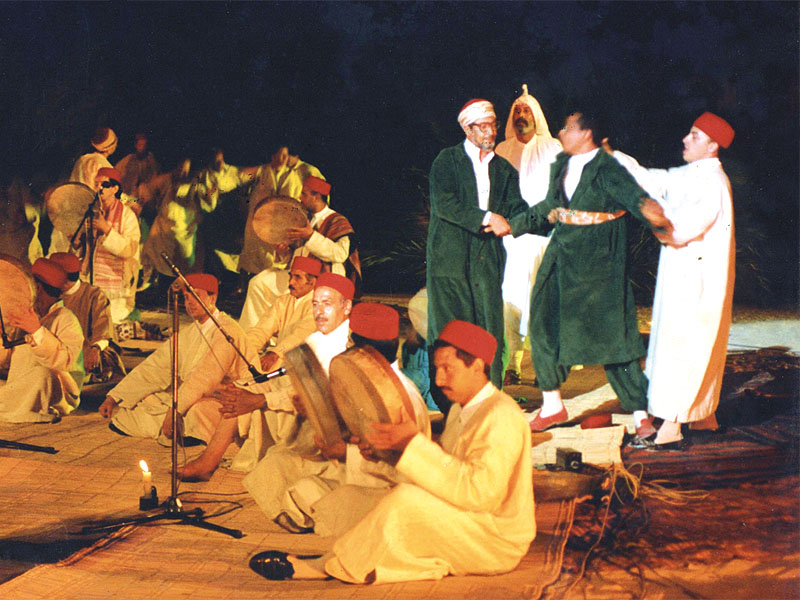Anthropologic Entrance to the Soufi Samaa in the Islamic west
Issue 6

Mohamed Kahlaoui - Tunisia
Century (where the Soufi Turuq emerged in the Maghreb) and this has become an inherent feature of the spiritual life in Africa and Maghreb countries, and has contributed to the appearance of ritual cultural phenomenon that stepped over this first purpose to become popular spiritual religious ceremonies that play psychological, cultural and social roles. The celebration of the Prophet’s birthday and the organization of visits to marabous to get the Baraka and to protection was a context of composing poems added to the divine love poetry and poems of praising the prophet like ‘al Burda’ of Bousairi. Since the 13th century, this heritage has been performed in ritual and spiritual meetings by beautiful voices, and satisfied the desire of disciples and audience attending this ceremonies, and a response happened through this lyric arts presented by the groups of Samaa in a somehow theatric view, though not theatre, nor preceded by the idea of theatric direction and expression, but had the place of the theater. These cultural artistic spiritual phenomena of a large group of the traditional Marghreb society have realized an integration in culture and identity, namely Arabic and Islam, because the savant culture has not touched the countryside of the Maghreb and Arab rural population groups living in remote locations, and the poems of Samaa and songs can be considered as a cultural register available to all social parts, without mentioning that most children get their primary learning (Arabic alphabet and memorizing the Coran) in the Zawiya and places built by Soufi people. In the study of this cultural spiritual and esthetic storage, we have focused on Abu al Hasan Chadili (1258), Sidi Mhamed ben Aissa (1526), Abdsalam al Asmar (1573). We have also considered the African negro Samaa practiced by African Muslims who have moved to the Maghreb countries. Their Samaa has a spiritual characteristic related to the believe of talking to hidden spiritual forces like the “gin”, which contributes to the emergence of the idea of music therapy in groups that practice the liturgical music.


































































